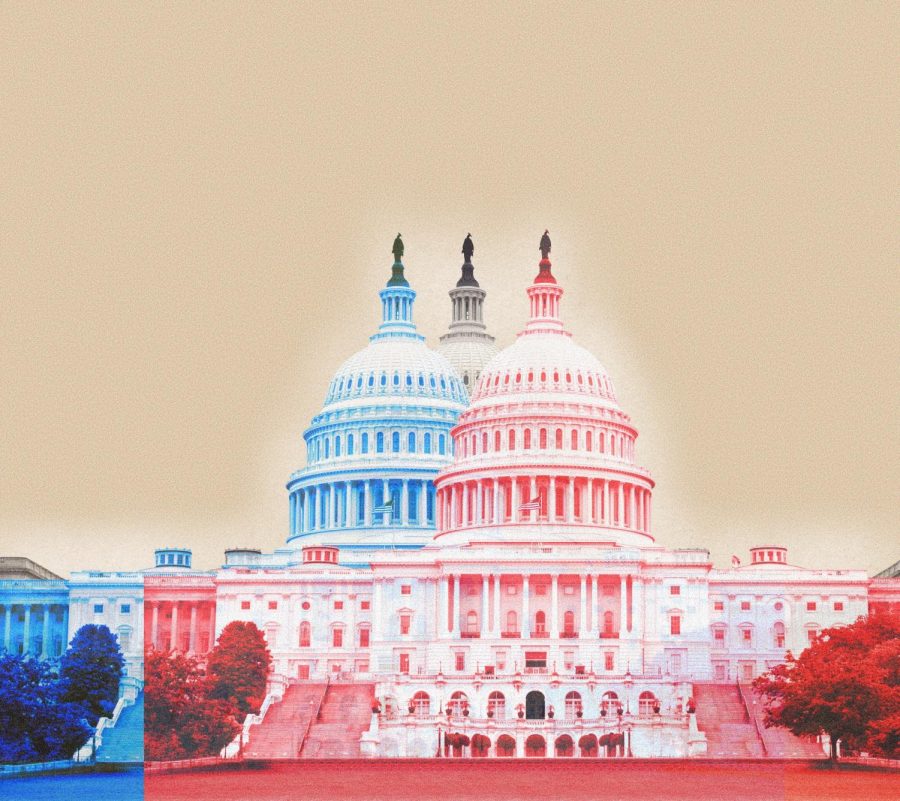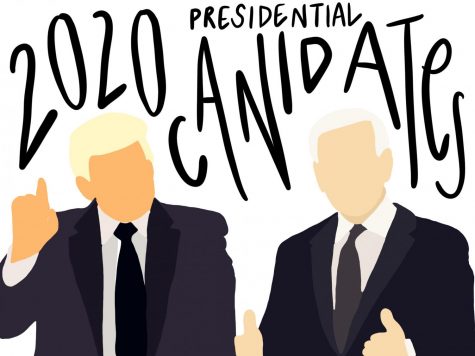We Need Bipartisanship Now More Than Ever
Our country is in great turmoil. In times like these, we can all agree that strong leadership and effective legislating will lead us to better days. As the “Commander and Chief,” the president leads the nation through times of crisis. While our president is incapacitated due to the virus he called a hoax, the legislating and leadership of our government now rests solely on the shoulders of Congress.
The founding fathers intended for the Senate to be the heart of the government, tasked with proposing and implementing legislation, managing funds and exercising its advice and consent clause. The Senate, rather than the president, was given these powers because each state is represented equally by two senators per state. The Senate, in its inherent nature, is a legislative body representing the American people that aims at upholding the rights of life, liberty and the pursuit of happiness. These founding principles won it the honorary title of “the world’s greatest deliberative body.”
But can this deliberative body be great if it does not operate successfully? In the American two-party system, conflict and disagreement are natural and often productive. However, if our two parties become so hostile that they refuse to work with one another, our elected officials may no longer continue the fight to uphold our rights. If the senators become more concerned with sustaining the views of their party rather than the rights of the American people, the system will fail.
In a passionate speech on the floor of the Senate only days after being diagnosed with brain cancer, the late senator John McCain pleaded to his peers that the abandonment of bipartisanship would be a failure to uphold the responsibility of a United States Senator. With a calm, yet passionate delivery, he declared, “the success of the senate is important to the continued success of America.” He went on to assert that it is necessary for senators to have the ability to look past their political ambitions, hatred towards the opposition and desire to “win.”
The divisiveness of our partisan politics is not the result of one specific incident; this trail has been blazed over the past decade through the advancement and expansion of partisan media presence, fearmongering and the overall division deeply embedded in our nation. However, bipartisanship is not dead. In 2018, seven senators worked across the aisle on more than 50 percent of bills cosponsored with the other party. Unfortunately, only one of these senators was a Republican Susan Collins of Maine. Upon further investigation, the numbers regarding bipartisanship from Republicans look even bleaker: the 10 senators who participated in bipartisanship the least were all Republicans, and of the top half of participants in bipartisan efforts, 60 percent were Democrats. While Democrats and Republicans alike need to work with their fellow senators regardless of party affiliation to provide the leadership and legislation needed in America, the Republican party can no longer point the finger at Democrats as the reason for stalled legislation.
Our country needs bipartisan efforts now more than ever. A stimulus package which would provide financial aid for millions of Americans in need has been stalled for more than a month. More than 200,000 Americans have died from coronavirus, millions are jobless and our elected Congressional representatives will not get them the help they need. Over this past weekend, President Trump announced on his Twitter that he and the Republicans in the Senate will not negotiate on the coronavirus aid bill until after the Nov. 3 election. In ending negotiations, Trump shows his blatant disregard towards the American people. Unwilling to cooperate in a bipartisan manner with Democratic leaders Nancy Pelosi and Chuck Schumer, Trump’s move epitomizes the Republican party’s incapability of looking beyond selfish political ambitions to get much needed financial aid to struggling Americans.
Upon immediately receiving backlash from Democrats and even some moderate Republicans, Trump changed his stance when tweeting:
However Trump’s proposal falls pathetically short of what Pelosi and Schumer are asking for. He is not looking to negotiate with Democrats, he is only concerned with appeasing his base. But the President does not do this alone. Senate majority leader Mitch McConnell enables Trump’s tactics. Controversially, McConnell has decided to prioritize the process to confirm Amy Coney Barrett to the Supreme Court. With Americans undecided on whether Barrett should be appointed before the Nov. 3 election, Trump and McConnell are failing to uphold their obligation to support the American people. Republican senators must not conform with their party’s leaders in obsessing with prioritizing the success of the Republican party over the success of America.
In an unprecedented time in our history, American leaders and elected officials must cooperate in bipartisan efforts. Shouldn’t these elected officials, these public servants, want America to be the best it can be? Shouldn’t they want to help their suffering constituents? As John McCain said in his prophetic speech, “what have we to lose by trying to work together to find those solutions?”
Your donation will support the student journalists of Saint Louis University. Your contribution will help us cover our annual website hosting costs.













